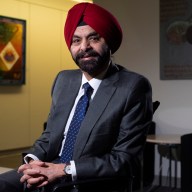 The New York State Senate is looking at legislation that would legalize medical marijuana statewide. Metro spoke with a Navy veteran in New York who uses marijuana, illegally at the moment, to treat his PTSD. Credit: Metro File Photo.
The New York State Senate is looking at legislation that would legalize medical marijuana statewide. Metro spoke with a Navy veteran in New York who uses marijuana, illegally at the moment, to treat his PTSD. Credit: Metro File Photo.
Rob is a Navy veteran who lives in Woodstock, NY. In 1986, he was on a Navy ship off of Libya, pulling watermines out of the Gulf. Rob was one of two men on the ship authorized to carry a loaded firearm.
Sometimes the watermines were on the surface of the water. Other times, Rob recalled, “they put ’em on anchors, so they’ll be 50 feet below the surface, so you can’t even see ’em, so they’re very difficult to find.”
“It was a very, very stressful, super high stress time,” Rob said.
Rob is one of the U.S. veterans using marijuana to treat Post-Traumatic Stress Disorder.
It was first suggested to him by a Veterans Affairs doctor at the end of an appointment, who started the illicit conversation by saying, “Now I want to talk to you frankly.”
Cannabis has helped him “tremendously,” Rob said, with hisanger issues, anxiety, sleeping disorder, and”just generally not being able to concentrate.”
“My mind would often wander back into situations I didn’t necessarily want to always be remembering,” he said.
Rob also did anger management and talk therapy, but was opposed to taking pharmaceutical medications, especially anti-depressants.
“I didn’t like how they made me feel,” he said.
When he started talking anti-depressants, he found himself growing increasingly depressed, reclusive, withdrawn from society, and even suicidal. Before the drugs, depression had never really been a factor in his PTSD.
When he first got out of the Navy, he was supposed to be an air traffic controller, but he “couldn’t handle the job,” he said.
He ended up not working for a while, then took on occasional landscaping and construction odd jobs, but couldn’t keep a regular schedule with his anxiety and sleeping issues.
Once he started using marijuana in 1991 or 1992, Rob said, he was able to get a 40-hour-a-week job with a construction firm “and progress my life to where I wanted it to go.”
“My ability to interact with the regular world was back,” he explained.”It was helping me re-integrate into society after being in the military and being in situations in the military that were clearly uncomfortable.”
Rob said the marijuana helped him be able to talk to a therapist about the overwhelming guilt and anger that was plaguing him.
Back then he used it on a daily basis, but now he said it’s “probably more like once a week, if it’s been a rough week, maybe two or three times a week.”
“Honestly, knowing it’s there as an option makes it less necessary, but it’s nice to know that it’s there,” he said.
Rob is one of the New Yorkers, and also one of the U.S. veterans, who is hopeful for the legislation being looked at in the NY State Senate that could legalize marijuana for medicinal use in NY State.
“Basically, I’m telling you I do a criminal act to treat myself,” Rob emphasized. “And I will indeed break the law to make sure that I’m a better society member, but if that’s what the government forces me to do, then that’s a shame.”
“It’s a shame that I can serve my country and not get the treatment that even my doctors say I need,” Rob said.
But then he added: “I’m not ashamed, and I’m very proud to have served my country in the U.S. Navy. I just think our government is fearful of something that maybe they should just let physicians take command of instead of a law enforcement aspect.”
Medical marijuana: the political
Medical marijuana: a doctor’s perspective
Follow Danielle Tcholakian on Twitter @danielleiat
















